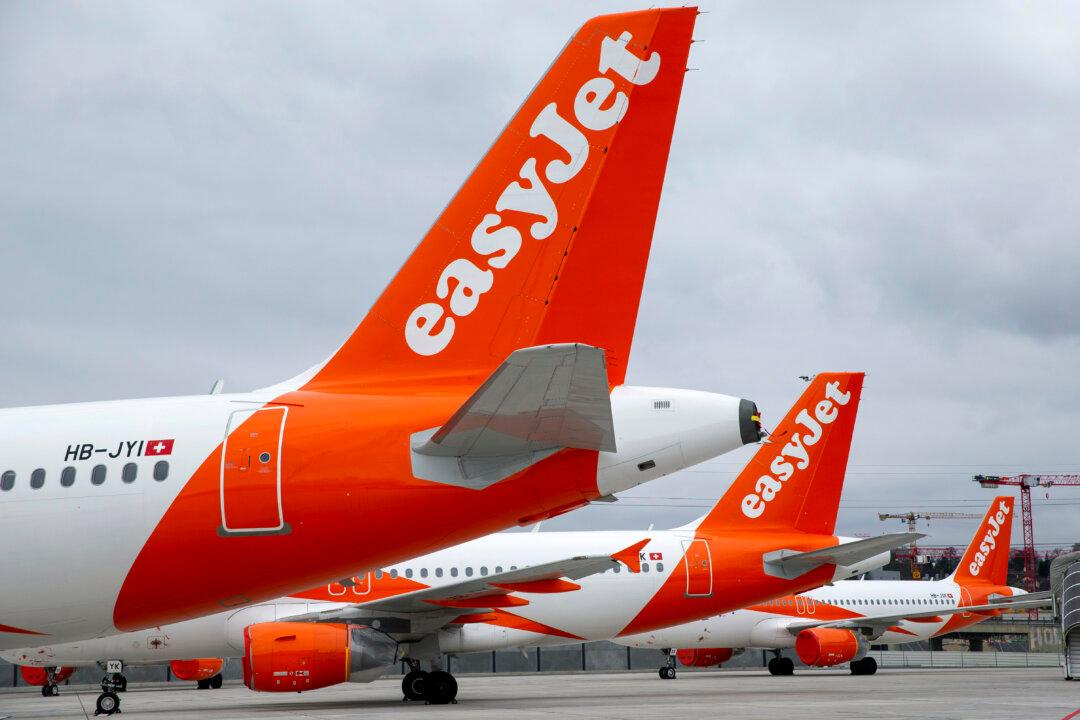British airline easyJet has posted its first full-year loss in its 25-year history due to the CCP virus pandemic but laid out hope that the rollout of vaccines will help it bounce back strongly next year.
On Tuesday, the airline reported (pdf) a pre-tax loss of £1.27 billion ($1.7 billion) for the year up to September as passenger numbers halved to 48.1 million.





